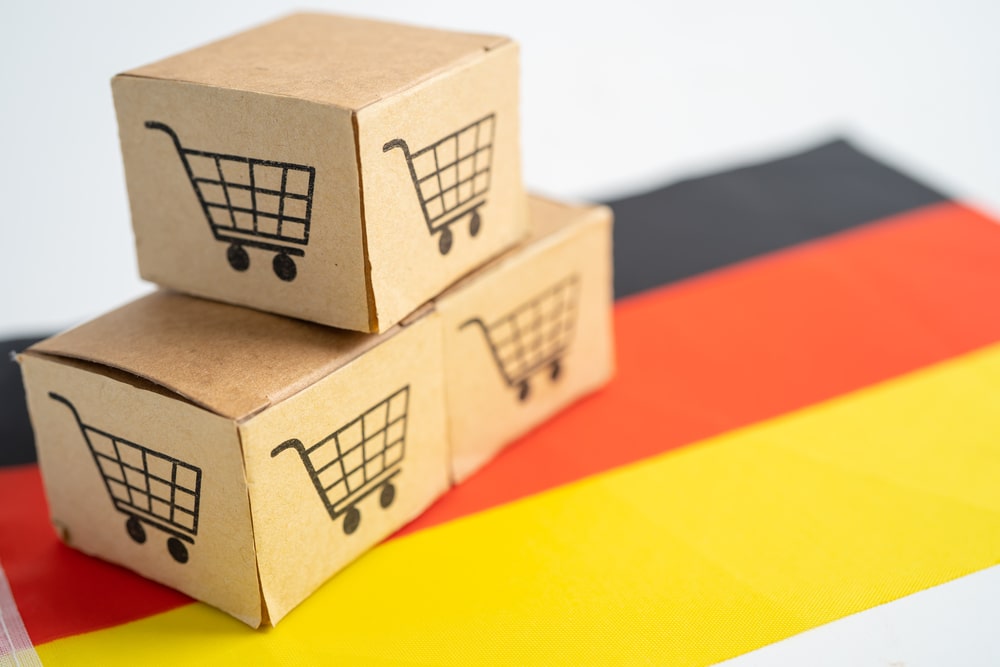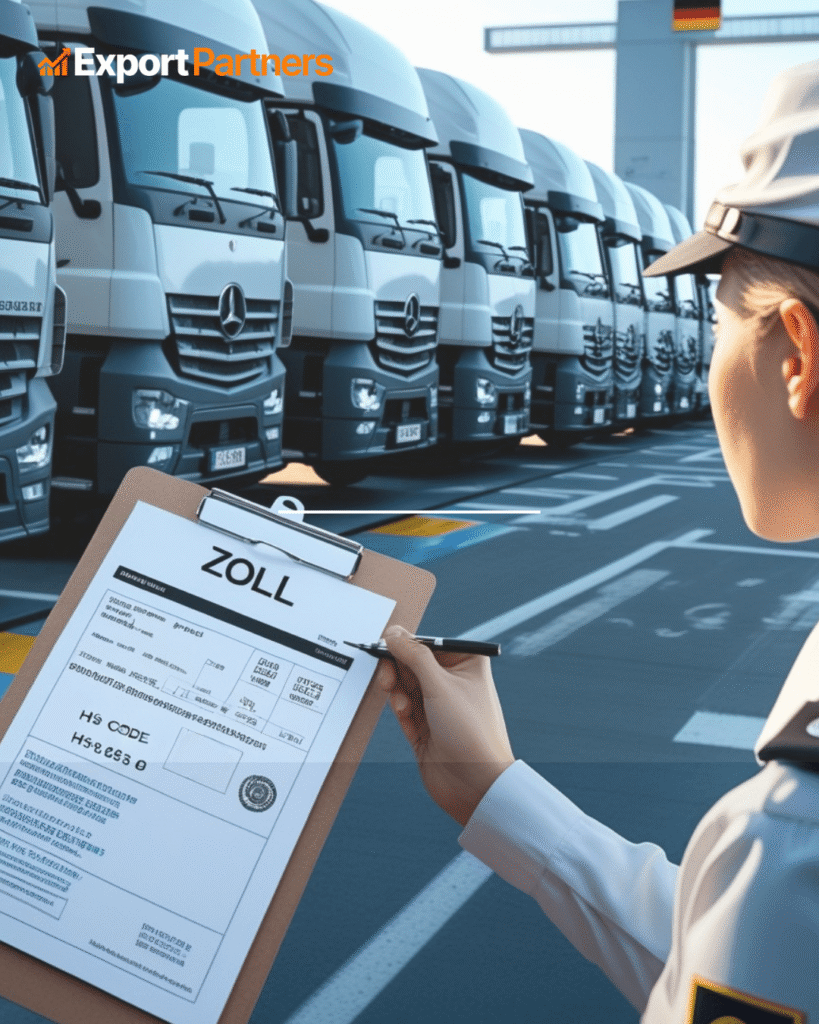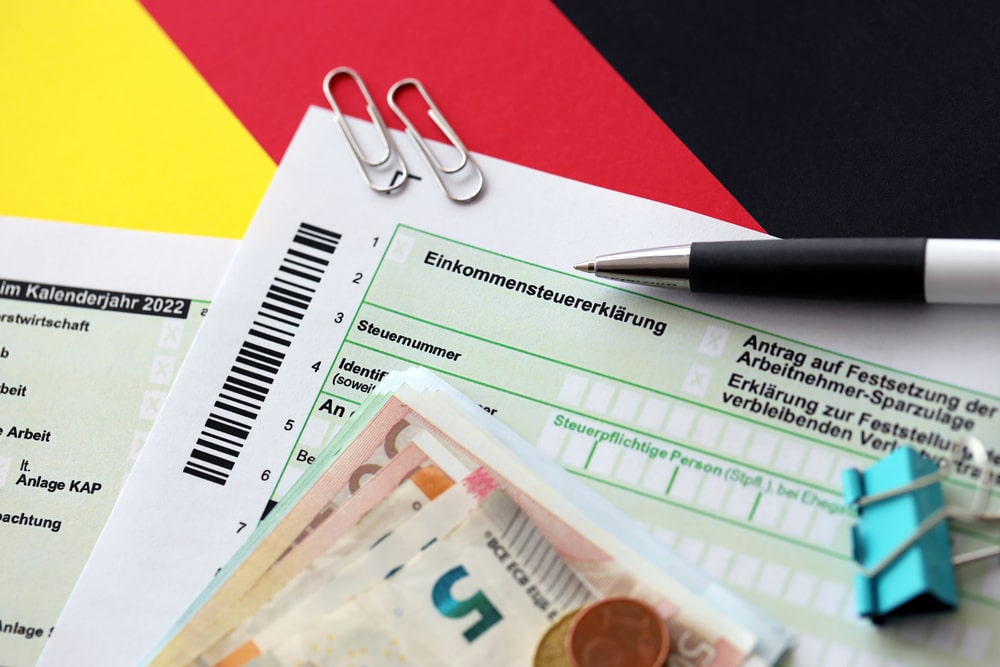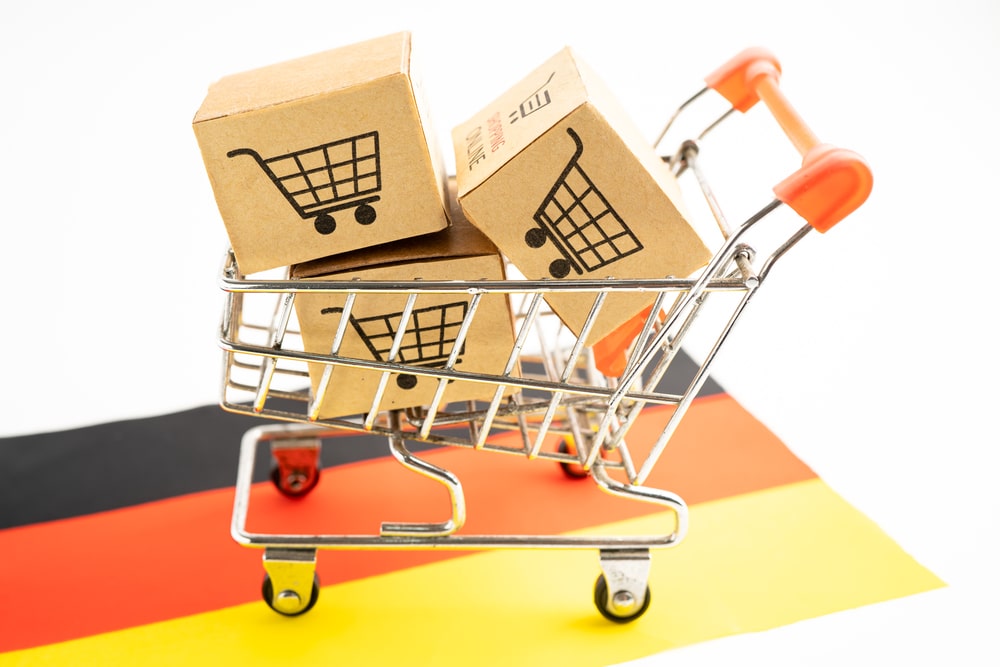
In this blog post, we have informed you about the Customs Process in Germany (Export from Turkey, EORI, Importer Responsibilities, Customs Codes and Required Documents ). We wish you pleasant reading.
Sending goods from Turkey to Germany is subject to customs legislation as it is technically an export and import transaction. Since Turkey has a Customs Union agreement with the European Union, certain procedures need to be followed, although there are some conveniences:
- Export Procedures (Turkey side): First of all, you should make the necessary preparations as an exporter company in Turkey. It is advisable to be a member of the Exporters Association, so that you can benefit from incentives and access up-to-date information. For the export customs declaration, you will work with a customs broker to declare the products and prepare documents such as invoices and packing lists. As Germany is known for its high quality and safety standards, make sure that your products comply with the legislation (for example, products that need to be CE marked must be CE marked). When your goods are subject to customs control, the necessary certificates and proof of conformity may be requested.
- EORI Number (Economic Operator Registration and Identification): All companies that will export/import to EU countries must have an EORI number. EORI is a number used as a company identifier in the EU customs system. In order for your company in Turkey to be able to make transactions at EU customs, it is necessary to obtain an EORI number from the German customs office before the first import in Germany. The EORI application can be made through the online portal of the German Customs Administration(Zoll) or by filling out the required form and submitting it by e-mail. The application will ask for information such as company details and tax number. Although it is possible to submit the application while your goods are en route, it is important to obtain an EORI in advance to avoid delays. Without an EORI number, you will not be able to clear European customs.
- Importer Responsibilities: An importer must be identified when entering goods into Germany. The importer is considered to be the party placing the products on the EU market and is legally responsible for their compliance with EU legislation. Unless you have established your own company in Germany, the importer can often be your logistics provider or customs broker, but even in this case, the responsibility for product safety, proper labeling and recalls, if necessary, will remain with your company. The customs tariff codes (GTIP/HS codes) of your products must be declared correctly at the time of import. For each product, there is an international HS code (Harmonized System Code) and the EU's Combined Nomenclature (KN) code; these codes determine the type of product and indicate the customs duty rates to be applied, the permits or restrictions needed. For example, there are separate HS codes for cosmetics and separate HS codes for electronics, and depending on these codes, some products may require additional dumping duties, anti-dumping or special authorizations in the EU. Therefore, it is critical to assign the correct codes to your products and indicate them in the proforma invoice.

- Required Customs Documents: Some of the basic documents that need to be prepared when exporting to Germany are as follows:
- (1) Commercial Invoice: English/Turkish invoice containing the sales price, buyer and seller information, product description, quantity, unit price and total price.
- (2) Packing Schedule (Packing List): Detailed list showing the contents, weight and dimensions of the boxes.
- (3) Certificate of Origin: Indicates the country of origin of the product; some buyers or customs may request it. Industrial products between Turkey and the EU are covered by the Customs Union, therefore, customs tax exemption is usually benefited by issuing the ATR Circulation Certificate. However, EUR.1 Certificate can also be preferred instead of ATR certificate in German customs. In particular, the EUR.1 Certificate is used for customs duty-free entry of industrial and processed agricultural products produced in Turkey into the EU within the scope of the Customs Union. With a correctly issued EUR.1 (or ATR) certificate, your products can be imported without customs duty in Germany.

- (4) Transport Documents: Depending on the mode of transport used - for example, a CMR document is prepared for road, Airway Bill for air, Bill of Lading for sea. If you have a door-to-door agreement with a freight forwarder, the freight forwarder will usually issue these documents, but it is your responsibility as the exporter to check the accuracy of the information.
- (5) Insurance Policy: A document showing that the cost of goods is insured in international transportation (mandatory if you are selling CIF or CIP according to INCOTERMS).
- (6) EUR.1/ATR Certificate of Circulation: As mentioned above, it is the official document approved by the exporters' associations to use the advantage of the Customs Union.
- (7) Certificates of Conformity: Additional documents such as health certificates for food, fumigation certificate for herbal products, CE declaration of conformity for electronics may be required at customs. For example, if you are exporting cosmetics, you may be asked to obtain a Health Certificate for Export Purposes from the Ministry of Health.
- Customs duties and VAT: Thanks to the customs union between Turkey and the EU, customs duties on most industrial products are zero. As long as you present the EUR.1 or ATR document and declare it with the correct HS code, you can import your products without paying customs duty in Germany. However, there is an import VAT (Import VAT) on product entry into the EU. The standard VAT rate in Germany is 19%. Import VAT is paid at the rate of 19% of the value of the goods + freight + insurance. This VAT is an amount that you can later deduct in your tax return if you have a VAT liability in Germany (i.e. you can eventually claim it back). During customs clearance, your customs broker will advise you on the payment of VAT and, if applicable, customs duties. Once the payment has been made and the checks have been completed, German customs will issue a free movement permit for your goods, so you can proceed with the shipment to the Amazon warehouse or any other point within Germany.
Note: Since customs processes can be complex, it is critical to work with an experienced logistics company and customs broker. In addition, contacting Export Partners to ensure that all documents on the export and import side are compatible (for example, details such as Amazon's warehouse address in the recipient section as you will deliver to Amazon, and your own company as the invoice recipient) will prevent problems.
Taxation Process (VAT, OSS, Obtaining a Tax Number in Germany, Tax Agent)
Before you start selling through Amazon in Germany, you should plan the VAT (MwSt) registration and declaration processes. Since you store and sell your products in Germany in the Amazon FBA model, you are obliged to be a VAT payer in Germany. Here are the taxation issues step by step:

- Obtaining a German VAT Number (Ust-IdNr): Foreign companies need to apply to the Federal Central Tax Office (BZSt) for VAT registration in Germany. The application can be submitted via the online portal or by written form. The application requires information such as company name, address, field of activity, estimated annual turnover in Germany and a copy of the company's commercial registration certificate. The application process can take several weeks; once the review is complete, you will be assigned a German VAT Tax Number. This number is issued by the tax office (Finanzamt) and is in the format VAT-ID (Umsatzsteuer-Identifikationsnummer) valid within the EU. Once you have your VAT number, you must enter it in your Amazon account settings and add it to your invoices for sales in Germany. You will also need to file periodic VAT returns in Germany (usually monthly or quarterly for starters).
- VAT rates and declarations: The standard VAT rate in Germany is 19%. Some products are subject to a reduced rate of 7% (e.g. most food, books, children's clothing). However, cosmetics, electronics and kitchenware are usually in the 19% category. Since you are selling from a warehouse in Germany, you will be charged 19% VAT on every sale as German domestic sales. In Germany, as in most EU countries, Amazon collects VAT from the customer and informs you of the net amount, as required by the Marketplace Facilitator law, but you are responsible for declaring it. During each declaration period, you must declare VAT by reporting your sales totals in Germany and the VAT collected to the German tax office, and pay any amount due. You can also deduct the VAT paid on imports by declaring them as VAT deductible on this declaration. You must also file an annual VAT report (Umsatzsteuer-Jahreserklärung) in Germany at the end of the year.

- OSS (One Stop Shop) System: OSS is a system that facilitates cross-border e-commerce VAT declarations in the EU. If you sell products stored in Germany to customers in EU countries other than Germany, VAT will be charged according to each country. With the regulation coming in 2021, if your total annual EU sales exceed €10,000, you will owe VAT to other countries, regardless of individual country thresholds. Whereas you would normally need to register for VAT in each country separately, with OSS registration you can declare and pay these other country sales centrally in one country (e.g. Germany). Once you become a VAT payer in Germany, you can apply for registration with the OSS, which allows you to report your B2C sales across the EU from Germany in a single window. Within the scope of the OSS, you declare a quarterly breakdown of your remote sales within the EU to the BZSt and pay the country-based VAT amounts at once. These amounts are distributed by Germany to the respective countries. For example, if you sell to France from your warehouse in Germany, you report and pay the French sales amount and 20% French VAT in the German OSS declaration, so you do not need to register and declare separately in France. Note: The OSS system is only intended for remote sales; if in the future you start stocking warehouses in a country other than Germany (e.g. France), you will need to obtain a VAT number in that country (OSS is not valid in the country of storage, it is only for sales to other countries when there is only one warehouse).
- Tax Representative Requirement: Some EU countries require non-EU companies to hire a local fiscal representative for VAT transactions. In Germany, there is no such requirement. This means that your Turkish company can register directly with the German tax office and obtain a VAT number without setting up a German company. Germany has made tax representation for foreign companies optional and limited only to special cases where tax exemptions are available. For example, companies that only pay VAT at customs and make transit sales within Germany without incurring tax liability can appoint a representative if they wish. In your case, however, since you will be making taxable sales in Germany, you will register your company as a VAT payer yourself. Working with a tax advisor or accounting firm is therefore not mandatory but highly recommended. As the tax processes in Germany can be complex (especially the language and bureaucracy), getting support from a local certified public accountancy firm ensures that declarations are made accurately and on time. For example, e-commerce focused consultants such as Yalmans can offer German VAT registration and declaration services to sellers from Turkey. Without professional support, there may be errors in correspondence with the German tax office, possible penalties and compliance with changing legislation.
Click here to read our blog post about Germany FBA Private Label Process.
As a result, before you set foot in Germany, you should complete your tax registration and enter your German VAT number in the Tax Information section of Amazon. Then, as you make sales, you should be compliant by periodically filing both intra-German VAT declarations and, if necessary, OSS declarations. Regular and accurate tax filing is essential for both the security of your Amazon account and your legal responsibilities.

